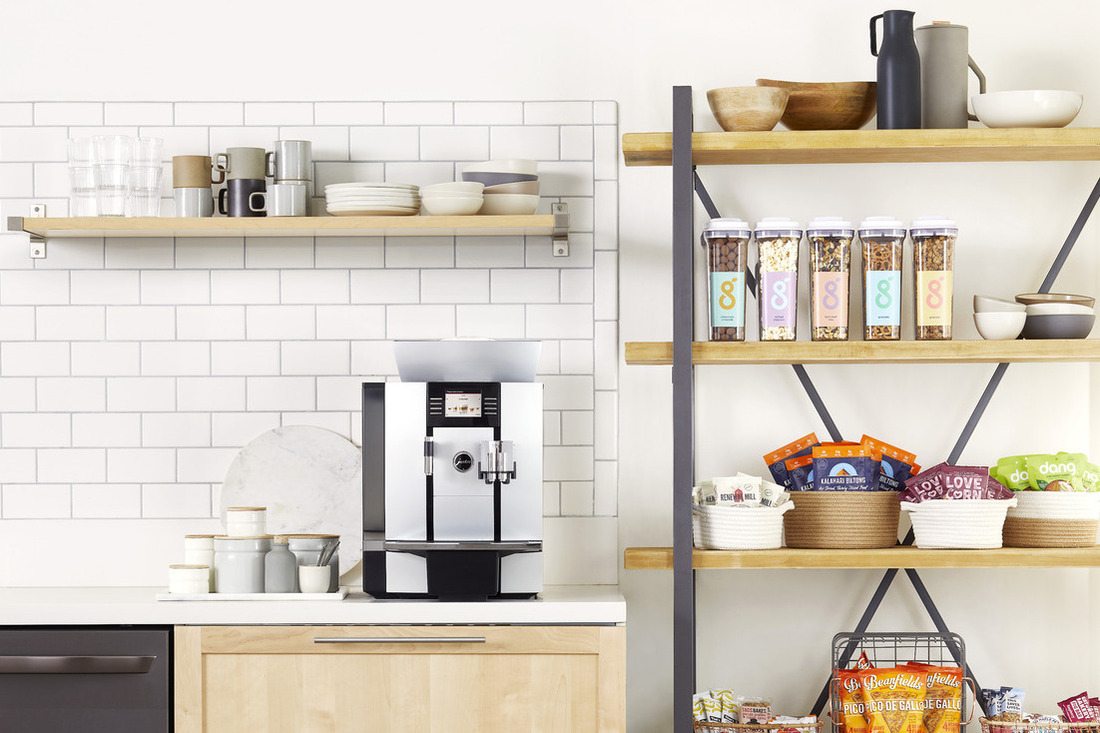Workplace wellness programs have become popular in recent years, with employers offering things like gym reimbursements, meditation apps and even occasional healthy snack perks. However, despite these efforts, a critical piece has often remained missing: a direct, measurable impact on employee well-being and performance.
“At Garten, we don’t believe in well-being for the sake of optics. We believe in outcomes,” says Gary Batara, vice president of marketing at Garten.
By combining premium, organic and non-GMO food solutions with analytics through its proprietary Analytics Dashboard, Garten aims to change how companies approach employee well-being, productivity and sustainability. The result? An approach that goes beyond traditional perks, focusing on workplace nutrition and employee well-being.
“Among the biggest mistakes companies can make with wellness programs is treating them as a feel-good initiative instead of a business strategy,” Batara says. “We’re trying to change that by giving organizations the tools to see, measure and improve employee well-being in real time. Our Analytics Dashboard doesn’t just track what people eat—it measures how well their diet aligns with the Healthy Eating Index (HEI). It is designed to provide insights into overall HEI score improvements and detailed breakdowns across the 13 dietary components, helping organizations understand how better nutrition is the foundation of a thriving workforce and company culture.”
The new standard: Why workplace well-being must evolve
Research suggests that wellness programs increase employee engagement, and these programs are in demand. According to Batara, employees aren’t just looking for a stocked breakroom—they expect high-quality, functional nutrition that aligns with their values.
This is why Garten is offering to change corporate food programs to prioritize the following:
- Ingredients that enhance diet quality, nutrient density and dietary alignment—key to improving HEI scores. They also include organic and non-GMO options whenever possible.
- Sustainability and ethical sourcing—because companies should not compromise environmental responsibility.
- Personalized, data-driven nutrition insights—because measurable outcomes drive long-term impact.
What makes Garten different?
Instead of one-size-fits-all snack programs, companies are seeking new solutions that align with employee expectations, ESG goals and measurable workplace performance. Garten is committed to satisfying this need through several strategies.
The first is by emphasizing a data-driven, measurable approach. Its proprietary Analytics Dashboard is designed to give HR teams and executives a direct line of sight into employee nutrition trends and workplace wellness metrics.
“Executives seek measurable outcomes, not vague promises. Garten is dedicated to providing data-driven insights into workplace nutrition trends, employee engagement with healthy options and breakroom management—including budget health, order tracking and real-time snack ratings,” Batara explains.
By tracking HEI scores and analyzing real-time consumption trends, Garten hopes companies can continuously optimize their food programs.
Another factor that makes Garten different is its elevated, premium brand experience. According to Batara, Garten isn’t a vending machine solution—it’s a high-quality, curated experience.
“The perception of well-being has shifted. Employees want organic, non-GMO, sustainable foods that don’t just fuel them but align with their lifestyle choices. We’ve built Garten and are committed to meeting that demand on a corporate scale,” Batara emphasizes.
Lastly, Garten strives to structure its approach in strategic alignment with company values. According to Batara, wellness initiatives are likely to work best when they resonate with employees, which is why Garten helps organizations design food programs that integrate into their culture.
“A breakroom stocked with premium, nourishing snacks isn’t just about food—it’s a signal to employees that their health is a priority. That message builds engagement, loyalty and performance,” Batara says.
The power of brand strategy in Garten’s growth
While Garten’s wellness model defines its approach, its market positioning and branding strategy have also played a key role in its growth.
“We believe organizations don’t just want a vendor—they want a partner whose ethos aligns with theirs,” Batara explains. “We don’t just offer premium food solutions; we’re committed to helping businesses reinforce their values by prioritizing well-being, sustainability and employee engagement. That level of alignment isn’t something that is easy to replicate.”
Instead of treating food programs as a transactional service, Garten is dedicated to embedding itself into the fabric of a company’s values through key elements:
- Educating companies on why well-being must be measurable to drive performance
- Shaping the brand around premium, clean-label nutrition and transparency
- ROI-driven—demonstrating the measurable impact of better nutrition on employee performance, retention and satisfaction
- Positioning Garten with executive-level appeal—a strategic business advantage with clear ROI on employee well-being rather than an HR perk
“We’re dedicated to helping organizations make a statement—not just with what they provide, but with what they stand for,” Batara says. “That’s why companies choose Garten: because we’re committed to making their values tangible.”
How Garten is driving real results
Garten’s data-backed approach with its proprietary Analytics Dashboard is structured to enhance workplace well-being for leading companies. Across multiple Fortune 100 organizations, Batara says companies using Garten’s solutions have reported positive trends in HEI scores and shifts in dietary habits, including increased consumption of fruits, vegetables, protein-rich foods, dairy and whole grains.
For more details on these insights, visit the Garten case study here.
“We believe well-being isn’t just about offering better food—it’s about creating real, measurable change,” Batara explains. “With our Analytics Dashboard, companies can see exactly how improved nutrition correlates to higher energy, better engagement and long-term business success.”
Considering the future of workplace well-being
Looking ahead, Garten is dedicated to setting a new standard for corporate well-being, blending premium food solutions with real-time analytics to create a smart, healthy and sustainable workplace experience.
“Companies that lead in well-being will lead in performance,” Batara asserts. “At Garten, we’re not just offering better food—we’re committed to shaping the future of how businesses care for their people.”
With a relentless focus on premium quality, sustainability and measurable impact, Garten is dedicated to proving that workplace well-being isn’t just a trend—it’s the future of work itself.




